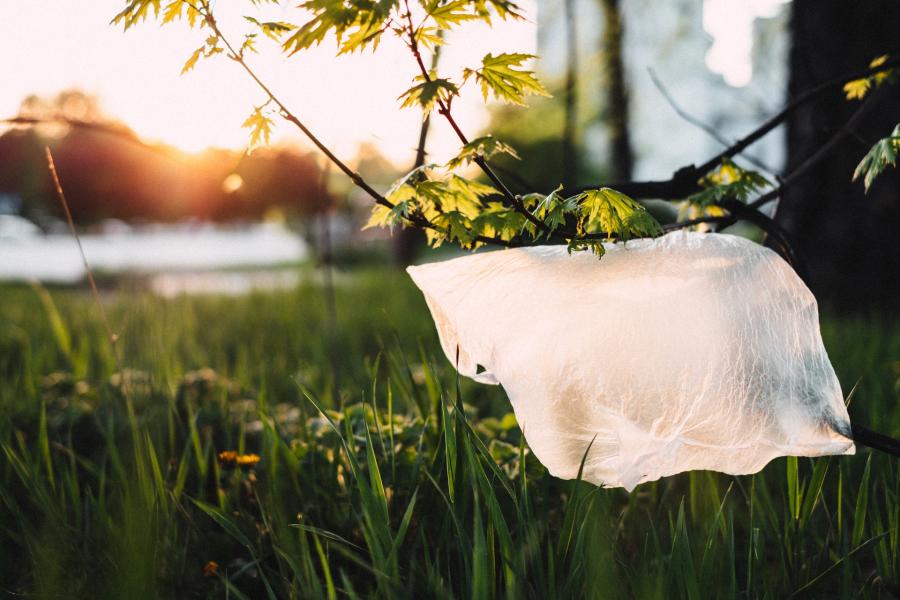Protect our Water Source with the Three Rs

Our treatment process can take practically anything out of the water to make it safe to drink, but it’s easier and cheaper if we don’t have to. The first step in providing affordable, safe water to your tap is keeping our source water clean. We all have a role in that.
All our customers live in Lake Erie’s watershed. This means that water runoff from land – and anything it might carry with it – will flow into a river, creek, stream, or storm drain that will eventually end up in Lake Erie. In fact, 80% of trash in Lake Erie comes flushed from city streets throughout the watershed, much of it plastics.
While plastic has many practical uses, plastic pollution has become a global challenge. Regardless of the type or size, plastic never decomposes, harming the environment, wildlife, and natural resources and creating health and safety hazards.
The Alliance for the Great Lakes has found that more than 85% of the debris picked up during their extensive Great Lakes beach cleanups is made up of plastic. Common items include cigarette butts, plastic lighters, food containers, grocery bags, beverage bottles, bottle caps, straws, plastic utensils, balloons, and even toys.
Following the three Rs that you may have learned in school – reduce, reuse, and recycle – can help keep our waterways clean by keeping unwanted debris out.
- Reduce the number of plastic items that you buy. Not purchasing these items in the first place ensures they never have the chance to enter our waterways. Look for items made of or packaged in more sustainable materials like cardboard or glass. And consider borrowing or buying second-hand rather than purchasing something new, both for the cost-saving as well as environmental benefits.
- Reuse or “upcycle” items when you can. Items made with plastic are incredibly prevalent and often we can’t avoid purchasing them. However, plastic containers, bottles, and jars can be reused or repurposed in dozens of ways. Clothes that you no longer wear can be given to friends or donated. Furniture and other household items can be offered up for sale (or free) on various websites and social media platforms.
- Recycle Right. Recycling is important but even more important is recycling correctly. Not everything belongs in your curbside recycling bin. Ignore the triangle-arrow symbol on many containers, it only indicates the type of plastic an item is made from, and instead check with CuyahogaRecycles.org or your local community to see what items are acceptable. Avoid being a “wishcycler.” If you contaminate a load of recyclable material by putting in things that are not recyclable, that entire load of otherwise recyclable material may end up in a landfill.
Beyond the three Rs, other helpful actions include the following:
- Refuse items, like plastic cutlery and straws when ordering take-out, when you can.
- Participate in local cleanups and get involved with local watershed groups.
- Dispose of waste properly. Make sure your trash is securely in the bin so nothing unintentionally gets out. Properly dispose of hazardous household chemicals and medications. And definitely don’t litter or dump waste illegally. You can report illegal dumping to Cleveland Water Pollution Control by calling 216-664-3867.
